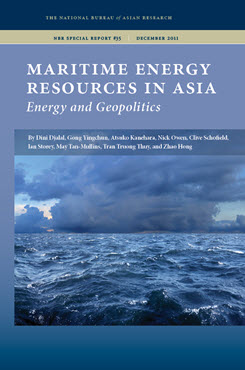Provisional Arrangements as Equitable Legal Management of Maritime Delimitation Disputes in the East China Sea
This essay explores the practices and interim activities related to the maritime jurisdictional disputes between China and Japan and between South Korea and Japan in accordance with the United Nations Convention on the Law of the Sea (UNCLOS) pending final resolution of the disputes.
EXECUTIVE SUMMARY
This essay explores the practices and interim activities related to the maritime jurisdictional disputes between China and Japan and between South Korea and Japan in accordance with the United Nations Convention on the Law of the Sea (UNCLOS) pending final resolution of the disputes.
MAIN ARGUMENT
In the absence of delimitation of maritime exclusive economic zones (EEZ) or continental shelf (CS) boundaries between countries, Articles 74 and 83 of UNCLOS stipulate rules and principles for provisional arrangements, which countries can enter into pending final resolution of disputes. In the case of the maritime jurisdictional disputes between Japan and its two neighbors, China and South Korea, provisional arrangements and activities are likely to be the primary means of managing the disputes for a considerable period.
Understanding that the differences over EEZ and CS boundaries are unlikely to be bridged in the foreseeable future, reliance on provisional arrangements in accordance with UNCLOS that do not jeopardize or hamper the ability to reach a final resolution will be the primary means through which Japan manages its respective maritime jurisdictional disputes with China and South Korea. As such, it is necessary for the provisional arrangements to be improved and strengthened—for example, by enhancing the jurisdictional regime for joint development zones, cooperation on resources conservation, and the provision of prior notice for marine scientific research in disputed waters. Finally, based on the evolution of international law and practice concerning maritime delimitation, particularly from recent judicial and arbitral precedents, employing the “equidistance and relevant circumstances method” could further strengthen provisional arrangements. By acknowledging these realities, the provisional arrangements could serve as effective instruments for managing the disputes until a final resolution is a viable option.
POLICY IMPLICATIONS
- The equidistance and relevant circumstances method, which sets forth guidelines for provisional arrangement of maritime delimitation disputes, developed out of the application of the legal principle on maritime delimitation under UNCLOS.
- By improving and strengthening the provisional arrangement between claimants concerning maritime delimitation disputes, tensions could be mitigated, allowing for progress in developing marine resources.
- Setting aside the issue of the territorial titles over disputed islands would give Japan, South Korea, and China practical opportunities for provisional and final solutions to their maritime delimitation disputes.


